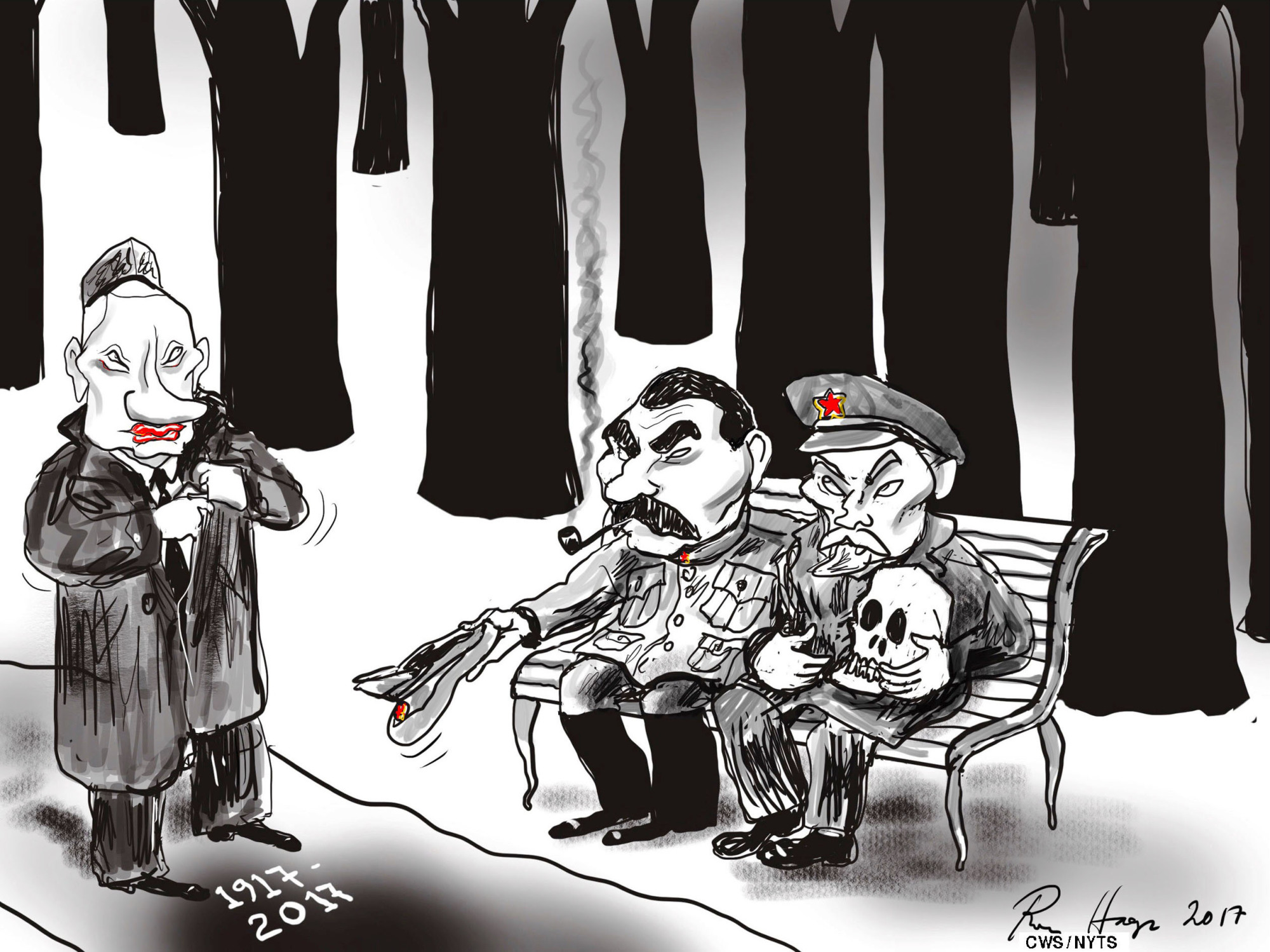Russia is locked in a battle between official history (the story of the state) and counter-history (the story of civil society and the memories of the people). With the centenary of the October Revolution this year, the clash will move to the center of public life.
Russian President Vladimir Putin is the embodiment of nostalgia not so much for Soviet times as for that period's sacralization of the state, which enabled the government to use, in modern parlance, "fake news" to advance its own ends. In fact, the October Revolution is remembered with no small amount of ambivalence and trepidation. Just the word "revolution" is abhorrent to modern Russian elites, tending as it does to be preceded by the epithets "orange" or "color" — the bete noire for Putin's regime. At the same time, the revolution was an important moment in Russia's history, and thus a source of national identity.
For the Communist Party, the anniversary is a clear opportunity to present itself as the successor of a great and enduring anti-capitalist tradition, albeit one that now brings together Marxist-Leninist teachings and the teachings of the Russian Orthodox Church. But the Communist Party is no longer in power, and for those who are, it's much harder to articulate a coherent approach to the centenary.


















With your current subscription plan you can comment on stories. However, before writing your first comment, please create a display name in the Profile section of your subscriber account page.